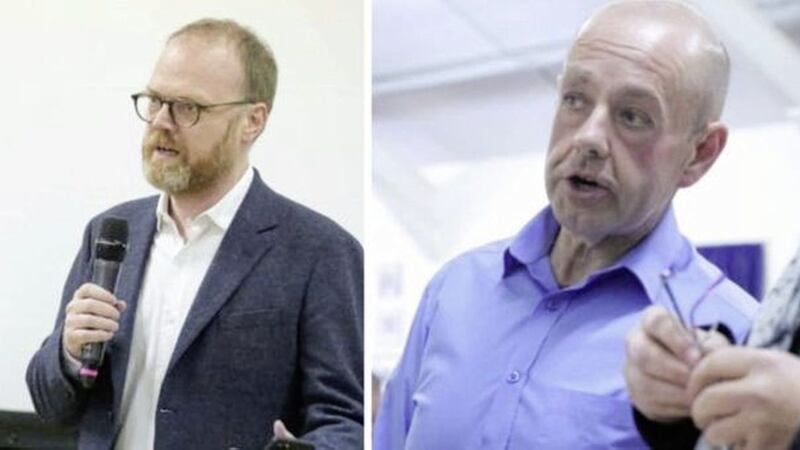On Monday British foreign secretary Jeremy Hunt said: “Imprisoning journalists who write about inconvenient truths is an unconscionable blow to press freedom - and indeed everyone’s freedom”.
Adding that he would be raising the arrest of two Reuters journalists, jailed for seven years for their investigation into the massacre of Rohingya in Myanmar, when he visits the country.
Wa Lone and Kyaw Soe Oo were jailed for ‘illegally acquiring’ classified information about the slaughter with the intention of sharing it with foreign media.
This powerful statement from Mr Hunt came three days after members of the Durham Constabulary assisted by the PSNI searched the homes and offices and arrested journalists Trevor Birney and Barry McCaffrey who made the documentary No Stone Unturned, which contained ‘inconvenient truths’ about the murder of UK citizens.
Mr Hunt was right about one thing, the imprisonment of journalists is an attack on all our freedoms.
Of those who justified the arrests of the two Belfast journalists, the question ‘are journalists above the law?’ was thrown around like confetti.
The answer to that is clearly of course not, but journalistic investigating also relies heavily on whistleblowers and the use at times of confidential documents, without this almost every major story of the last number of decades would never have seen the light of day.
In 2009 a hard drive containing four million items of data from the Commons expenses office was passed to the Daily Telegraph by a whistleblower.
The Telegraph's lawyers, who were said to have a reputation for caution, were convinced by Robert Winnett, the paper’s deputy political editor, that the public interest case was overwhelming.
And it was, as we now know the disc contained an itemised list with details of spending on moats, duck houses and MPs ‘flipping’ second homes to maximise expenses claims.
It led to the first resignation of a Speaker in the House of Commons for more than 300 years; prompted the resignation of a dozen government ministers and an overhaul of how expenses are claimed and monitored.
All from a disc obtained from a government office.
No journalist from the Telegraph team who handled the material was arrested by police or had their homes searched.
Documents obtained by hacking off shore law firm Appleby, leaked to the German newspaper Süddeutsche Zeitung, and shared with a US-based organisation, the Pulitzer prize-winning International Consortium of Investigative Journalists (ICIJ) formed the so called ‘Paradise Papers’ investigation.
The project revealed details of the complex arrangements and offshore activities of some of the world’s richest people and companies.
Both these stories were considered public interest journalism, investigations that exposed wrongdoing and greed.
Both focus on money, no journalist was arrested.
No Stone Unturned was based on the murders of six innocent civilians watching a football match, and the shocking failure to properly investigate or ever convict anyone of those killings.
Do we place more value on money, expenses and tax evasion, than we do on life?
There are countless cases - medical negligence, child abuse, financial and moral wrongdoing and even illegal wars and arms deals - that have been reported on as a result of documents and information you the public were never meant to see.
Such confidential leaks have formed the basis of public interest journalism since newspapers first rolled off the press.
It is no accident that when a country falls under the control of a totalitarian regime that the first strike is always on journalists.
It is a very deliberate tactic of the Trump regime to attack the press, shouting ‘fake news’ at award winning publications such as the New York Times and Washington Post, refusing to answer questions from CNN while giving exclusive interviews to supportive Fox News.
If a document falls on my desk that contains explosive details of state wrongdoing, do those who welcomed the arrest of Barry McCaffrey and Trevor Birney really think I should ignore that?
That members of the public and civil servants who see wrongdoing should be too terrified to act as whistleblowers?
Politicians should be held to account by journalists, not given an unquestioning platform. The state and its security agencies, particularly in places where there is or has been conflict, need to be questioned if it is suspected they failed to protect or colluded in the murder of its own citizens.
Failure to do so is not journalism, it is at best public relations and at worst propaganda.
Covering up the actions of the rich and powerful is not why I became a journalist, this is a hill I’m willing to die on.
And so I send solidarity to my arrested colleagues, an attack on them is an attack on us all, and if the state jail one of us they better be prepared to jail us all.








